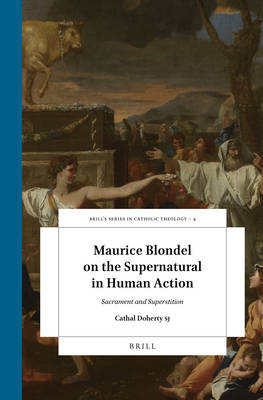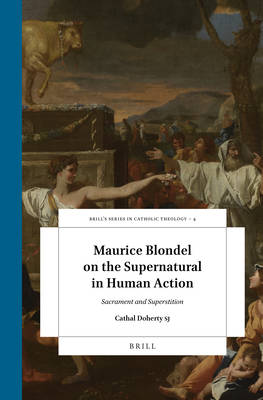
- Afhalen na 1 uur in een winkel met voorraad
- Gratis thuislevering in België vanaf € 30
- Ruim aanbod met 7 miljoen producten
- Afhalen na 1 uur in een winkel met voorraad
- Gratis thuislevering in België vanaf € 30
- Ruim aanbod met 7 miljoen producten
Zoeken
€ 233,95
+ 467 punten
Omschrijving
How do sacraments differ from superstition? For Enlightenment philosophers such as Kant, both are merely natural actions claiming a supernatural effect, an accusation that has long been ignored in Catholic theology. In Maurice Blondel on the Supernatural in Human Action: Sacrament and Superstition, however, Cathal Doherty SJ reverses this accusation through a theological appropriation of Blondel's philosophy of action, arguing not only that sacraments have no truck with superstition but that the 'Enlightened' are themselves guilty of that which they most abhor, superstitious action. Doherty then uses Blondel's philosophical insights as a heuristic and corrective to putative sacramental theologies that would reduce the spiritual or supernatural efficacy of sacraments to the mere human effort of perception or symbolic interpretation.
Specificaties
Betrokkenen
- Auteur(s):
- Uitgeverij:
Inhoud
- Aantal bladzijden:
- 328
- Taal:
- Engels
- Reeks:
- Reeksnummer:
- nr. 4
Eigenschappen
- Productcode (EAN):
- 9789004342422
- Verschijningsdatum:
- 6/04/2017
- Uitvoering:
- Hardcover
- Formaat:
- Genaaid
- Afmetingen:
- 157 mm x 236 mm
- Gewicht:
- 598 g

Alleen bij Standaard Boekhandel
+ 467 punten op je klantenkaart van Standaard Boekhandel
Beoordelingen
We publiceren alleen reviews die voldoen aan de voorwaarden voor reviews. Bekijk onze voorwaarden voor reviews.








